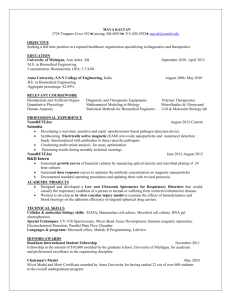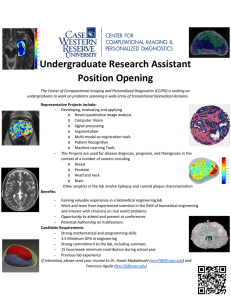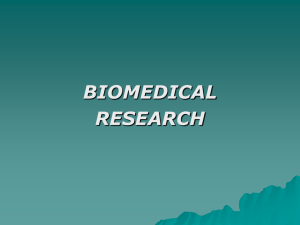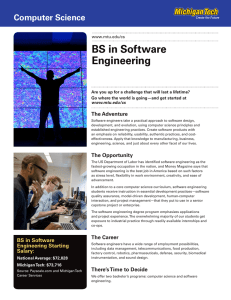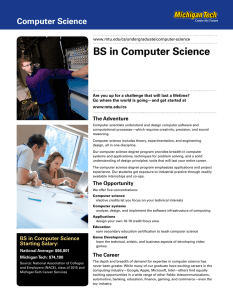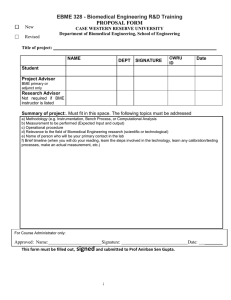graduate school biomedical engineering (accelerated ms, ms, phd) college of engineering
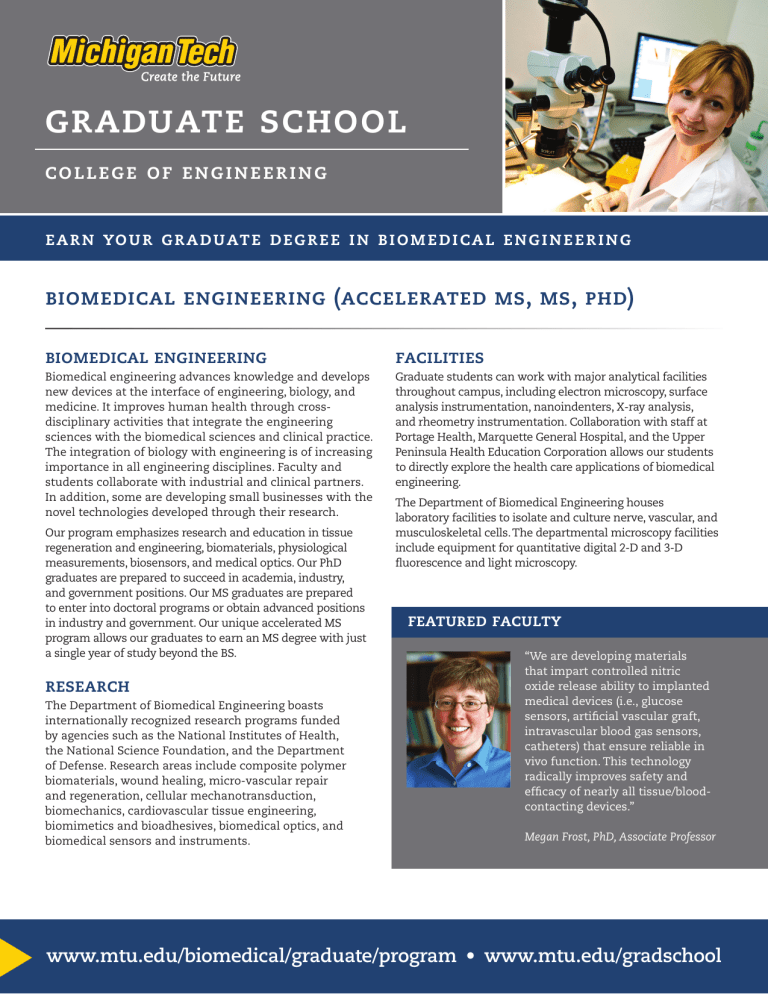
graduate school
college of engineering
earn your graduate degree in biomedical engineering
biomedical engineering (accelerated ms, ms, phd)
biomedical engineering
Biomedical engineering advances knowledge and develops new devices at the interface of engineering, biology, and medicine. It improves human health through crossdisciplinary activities that integrate the engineering sciences with the biomedical sciences and clinical practice.
The integration of biology with engineering is of increasing importance in all engineering disciplines. Faculty and students collaborate with industrial and clinical partners.
In addition, some are developing small businesses with the novel technologies developed through their research.
Our program emphasizes research and education in tissue regeneration and engineering, biomaterials, physiological measurements, biosensors, and medical optics. Our PhD graduates are prepared to succeed in academia, industry, and government positions. Our MS graduates are prepared to enter into doctoral programs or obtain advanced positions in industry and government. Our unique accelerated MS program allows our graduates to earn an MS degree with just a single year of study beyond the BS.
research
The Department of Biomedical Engineering boasts internationally recognized research programs funded by agencies such as the National Institutes of Health, the National Science Foundation, and the Department of Defense. Research areas include composite polymer biomaterials, wound healing, micro-vascular repair and regeneration, cellular mechanotransduction, biomechanics, cardiovascular tissue engineering, biomimetics and bioadhesives, biomedical optics, and biomedical sensors and instruments.
facilities
Graduate students can work with major analytical facilities throughout campus, including electron microscopy, surface analysis instrumentation, nanoindenters, X-ray analysis, and rheometry instrumentation. Collaboration with staff at
Portage Health, Marquette General Hospital, and the Upper
Peninsula Health Education Corporation allows our students to directly explore the health care applications of biomedical engineering.
The Department of Biomedical Engineering houses laboratory facilities to isolate and culture nerve, vascular, and musculoskeletal cells. The departmental microscopy facilities include equipment for quantitative digital 2-D and 3-D fluorescence and light microscopy.
featured faculty
“We are developing materials that impart controlled nitric oxide release ability to implanted medical devices (i.e., glucose sensors, artificial vascular graft, intravascular blood gas sensors, catheters) that ensure reliable in vivo function. This technology radically improves safety and efficacy of nearly all tissue/bloodcontacting devices.”
Megan Frost, PhD, Associate Professor
www.mtu.edu/biomedical/graduate/program • www.mtu.edu/gradschool
admission requirements
Application deadline: Apply at least one semester in advance of projected admission.
Applications are reviewed on an individual basis using a holistic approach.
All Students
• Graduate School application
• Statement of purpose
• Official transcripts
• GRE*: Recommended Quantitative Score of 155, Verbal Score of 153, and Analytical
Writing Score of 4.0 or better
• Three letters of recommendation*
• Résumé/curriculum vitae
• Recommended GPA of 3.0/4.0 or better
*Michigan Tech students exempt
International Students
• TOEFL: Recommended score of 100 iBT
finance your future
Earning your graduate degree is an investment in your career and your future. Here are a few financial aid opportunities you can explore as you look for ways to pay for your degree.
• Every student accepted into our PhD program is considered for financial aid.
Research assistantships in an area of concentration can be awarded by our faculty.
Contact faculty members for availability in your area of interest. Departmental teaching assistantships are also available.
• Many graduate students are eligible for a new set of federal loans, up to $20,500 per academic year, as an independent student.
• Contact Michigan Tech’s Financial Aid Office at 906-487-2622 or finaid@mtu.edu for more information on financial aid opportunities.
about michigan tech
Michigan Technological University, founded in 1885, has gained worldwide recognition for innovative education and scholarship.
Michigan Tech is a leading public research university, exploring the boundaries of knowledge, developing new technologies, and preparing students to create the future for a prosperous and sustainable world. Michigan
Tech offers more than seventy graduate degree programs in engineering, forestry and environmental sciences, computing, business and economics, natural and physical sciences, technology, humanities, and social sciences.
about houghton
Houghton lies in the heart of Upper Michigan’s scenic Keweenaw Peninsula. The campus overlooks the Keweenaw Waterway and is just a few miles from Lake Superior. The area’s waters and forests, including our 600-acre recreational forest adjoining campus, offer students unparalleled opportunity for outdoor recreation and relaxation. The University’s
7,000 students come from all fifty states and more than sixty nations, making the area a vibrant, multicultural community.
applying is easy—and free
!
www.mtu.edu/gradschool/admissions/apply
Department of Biomedical Engineering
Michigan Technological University
Minerals and Materials Engineering Building, Room 310
1400 Townsend Drive • Houghton, MI 49931-1295
Phone 906-487-2772 • Fax 906-487-1717 • Email biomed@mtu.edu
www.mtu.edu/biomedical/graduate/program
Graduate School
Email gradadms@mtu.edu or call 906-487-2327 www.mtu.edu/gradschool
Michigan Technological University is an equal opportunity educational institution/equal opportunity employer, which includes providing equal opportunity for protected veterans and individuals with disabilities. 34022/0714

